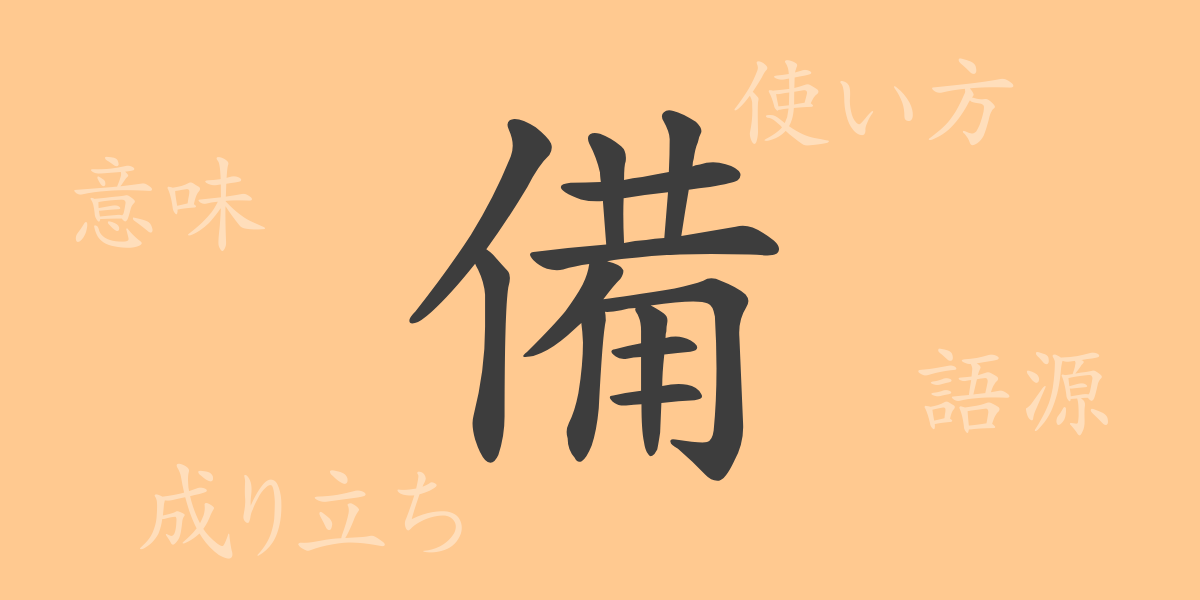The charm of the Japanese language lies in its delicate and rich expressions. Particularly, kanji (漢字, kanji) plays a crucial role in conveying the essence of the culture through its form and profound meanings. This time, we focus on the commonly used kanji “備” (び, bi), exploring its history, usage, and significance in the daily lives of Japanese people.
Origin of “備” (び, bi)
The kanji “備” (び, bi) is a character that originated in ancient China, composed of the radical “人偏” (にんべん, ninben) and “必” (ひつ, hitsu). The “必” (ひつ, hitsu) originally was a pictograph representing weaving or knots, carrying the meaning of making something certain. With the addition of the radical “人偏” (にんべん, ninben), it came to express the act of a person making something certain, i.e., “preparing” or “getting ready.”
Meaning and Usage of “備” (び, bi)
The kanji “備” (び, bi) means “to prepare,” “to get ready,” or “to be equipped.” It is also used to indicate a state of being well-prepared or meeting certain conditions. This kanji is frequently seen not only in individual actions but also in the context of organizational or national preparations and measures, making it common in business and political contexts.
Reading, Stroke Count, and Radical of “備” (び, bi)
To deepen the understanding of the kanji “備” (び, bi), it is important to know its readings and components.
- Readings: The on’yomi (音読み, on’yomi) is “ビ” (び, bi), and the kun’yomi (訓読み, kun’yomi) are “そなえる” (そなえる, sonaeru) and “そなわる” (そなわる, sonawaru).
- Stroke count: It has a total of 12 strokes.
- Radical: The radical is “人偏” (にんべん, ninben).
Idioms, Idiomatic Expressions, and Proverbs Using “備” (び, bi)
There are numerous idioms, idiomatic expressions, and proverbs in Japanese that include the kanji “備” (び, bi), each reflecting Japanese culture and thought. For example, “万全の備え” (ばんぜんのそなえ, banzen no sonae) means perfect preparation for any situation, and the proverb “備えあれば憂いなし” (そなえあればうれいなし, sonae areba urei nashi) means if you are prepared, you have nothing to worry about. These expressions show how Japanese people perceive and prepare for future uncertainties.
Summary of “備” (び, bi)
The kanji “備” (び, bi) represents the concepts of preparation and being well-equipped through both its form and meaning. It teaches the importance of being prepared in Japanese life. Widely used from business to daily conversations and proverbs, it offers a glimpse into the rich expressive power of the Japanese language. Understanding the meaning and cultural background of a single kanji like this leads to a deeper comprehension of the language.

























